Abstract
A novel experimental design was employed to further investigate the importance of founder effects in determining the outcome of competition between the flour beetles Tribolium castaneum and T. confusum. Each of 10 replicate cultures in seven competition series was started with 10 pairs of adults of each species that were, in turn, the progeny of 1, 2, 4, 8, 16, 32, or 64 pairs of adults, respectively, from the foundation population. Thus the founder effect occurred one generation prior to the initiation of competition. An analysis of variability among replicate cultures for the first eight monthly censuses showed a significant increase in variation with smaller numbers of original pairs, confirming the hypothesis previously proposed to explain the indeterminate outcome of replicate competition cultures initiated with small numbers of founders. In addition, there was a significant reduction in the rate of elimination of T. confusum with smaller numbers of original pairs. It is suggested that T. castaneum is more sensitive to inbreeding, and that the differential response of the two populations to inbreeding reflects a difference in their homeostatic properties.
Full text
PDF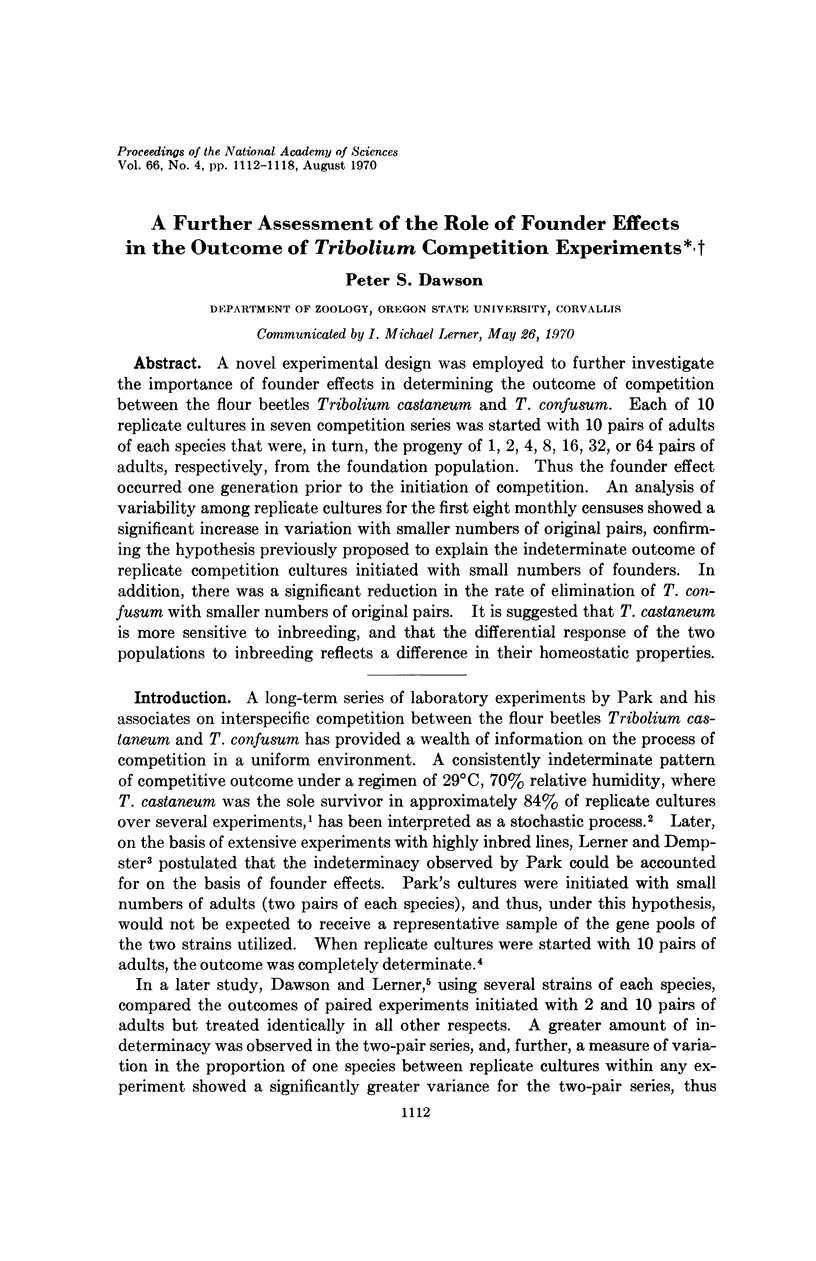
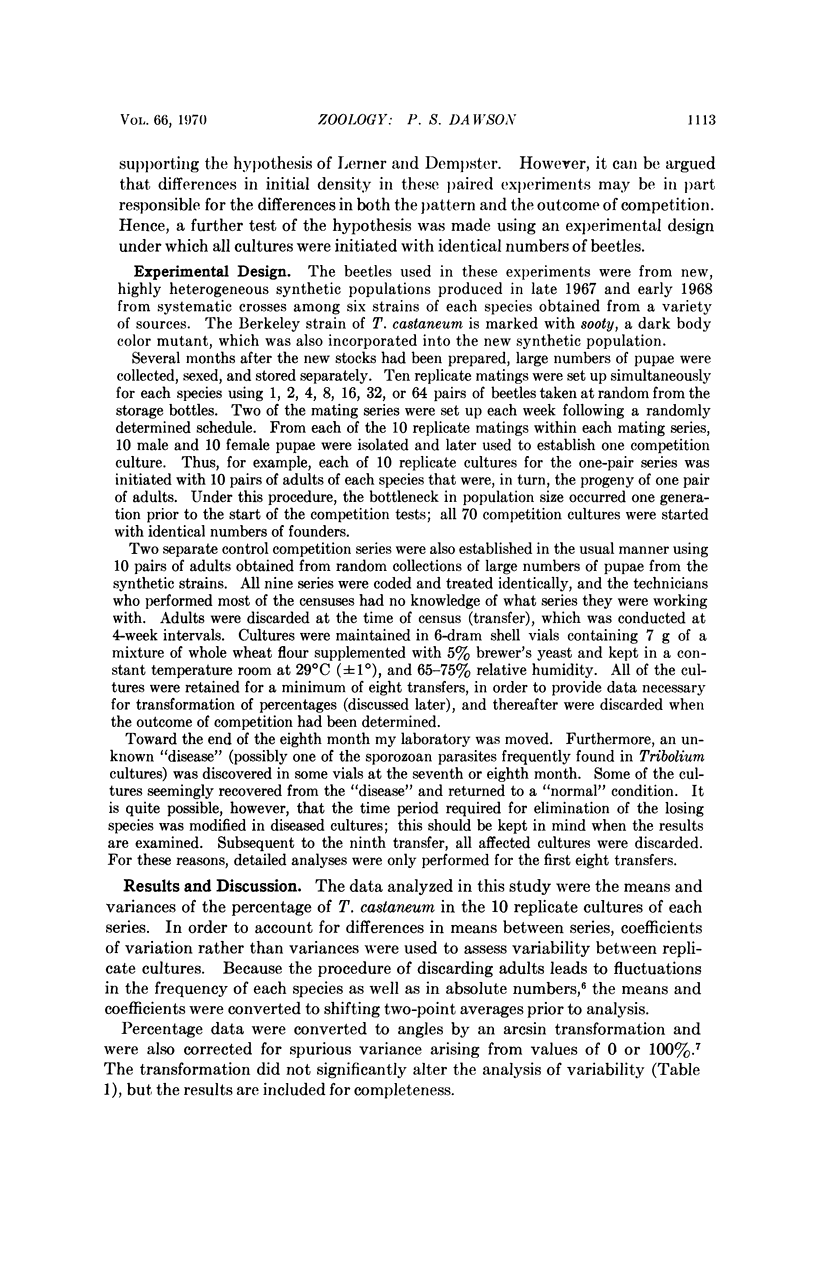
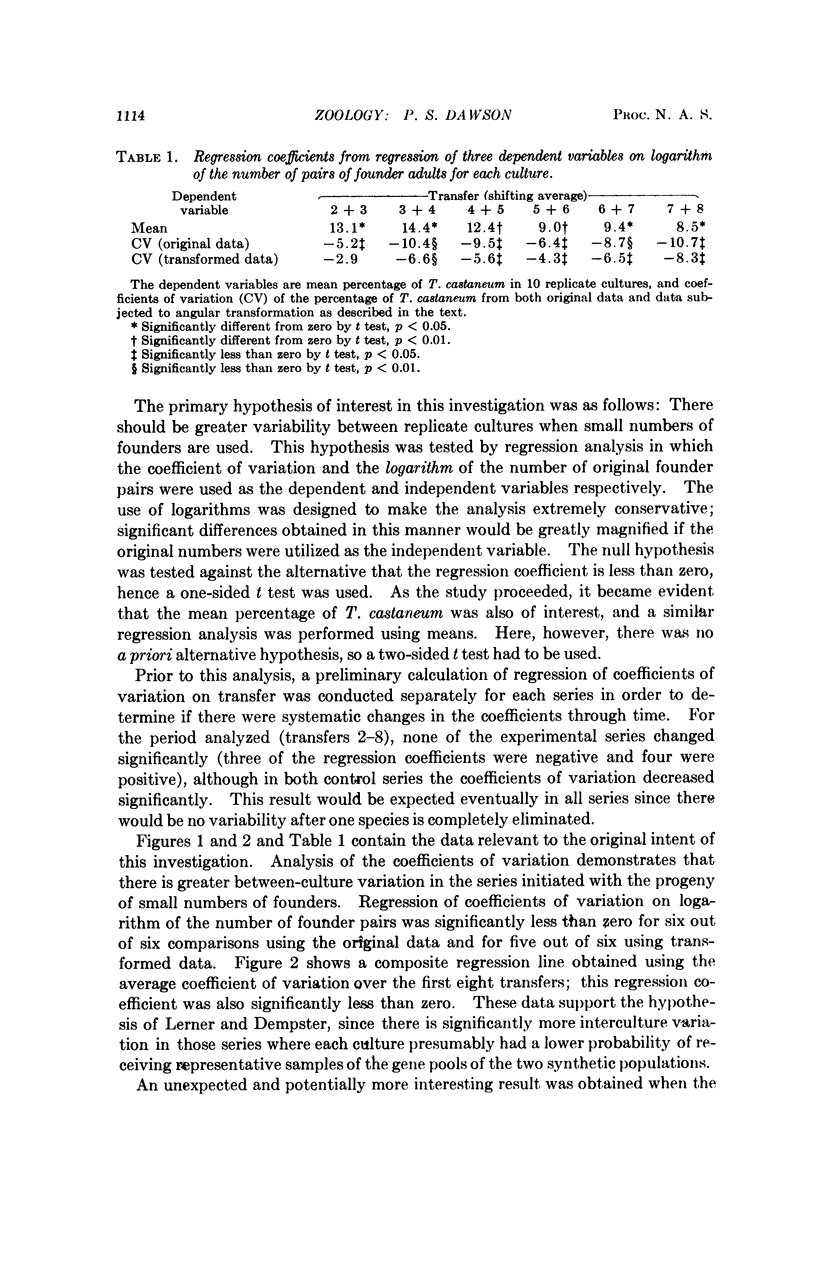
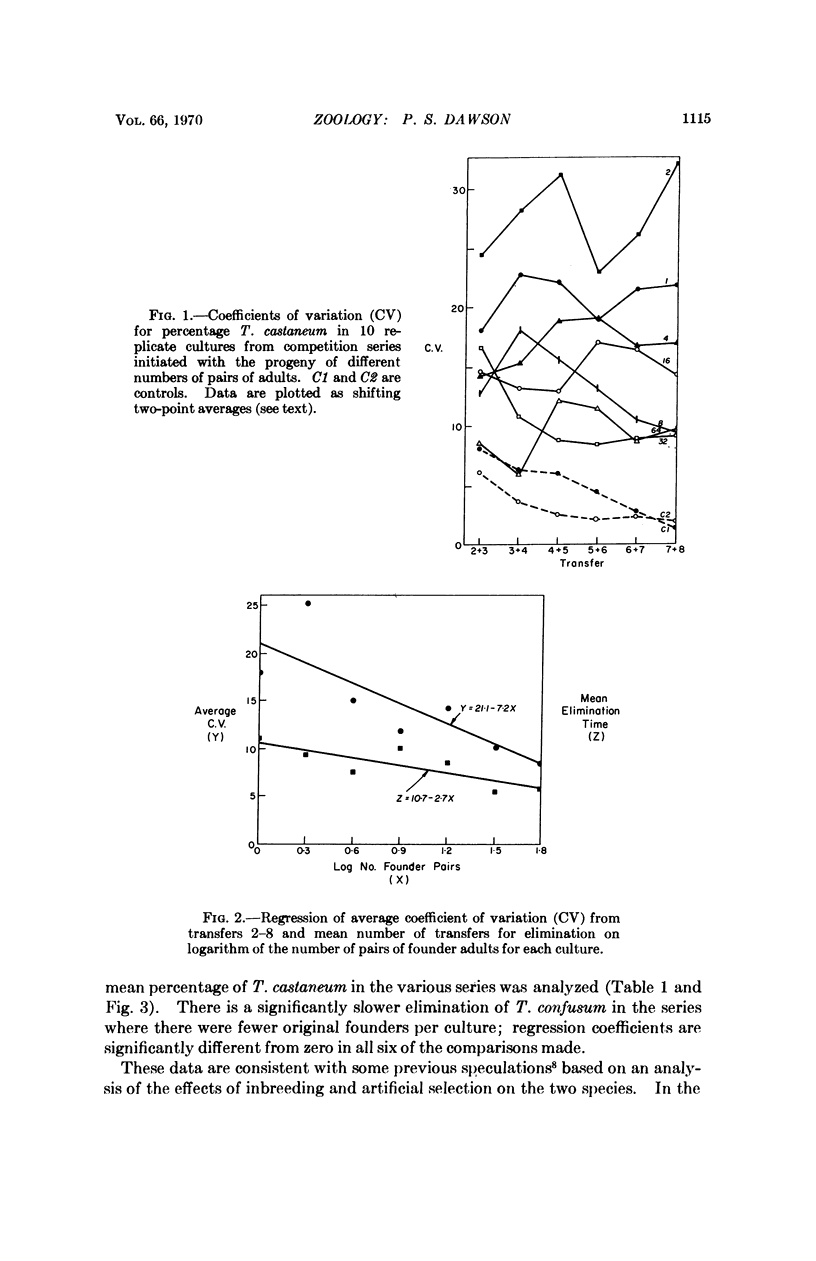
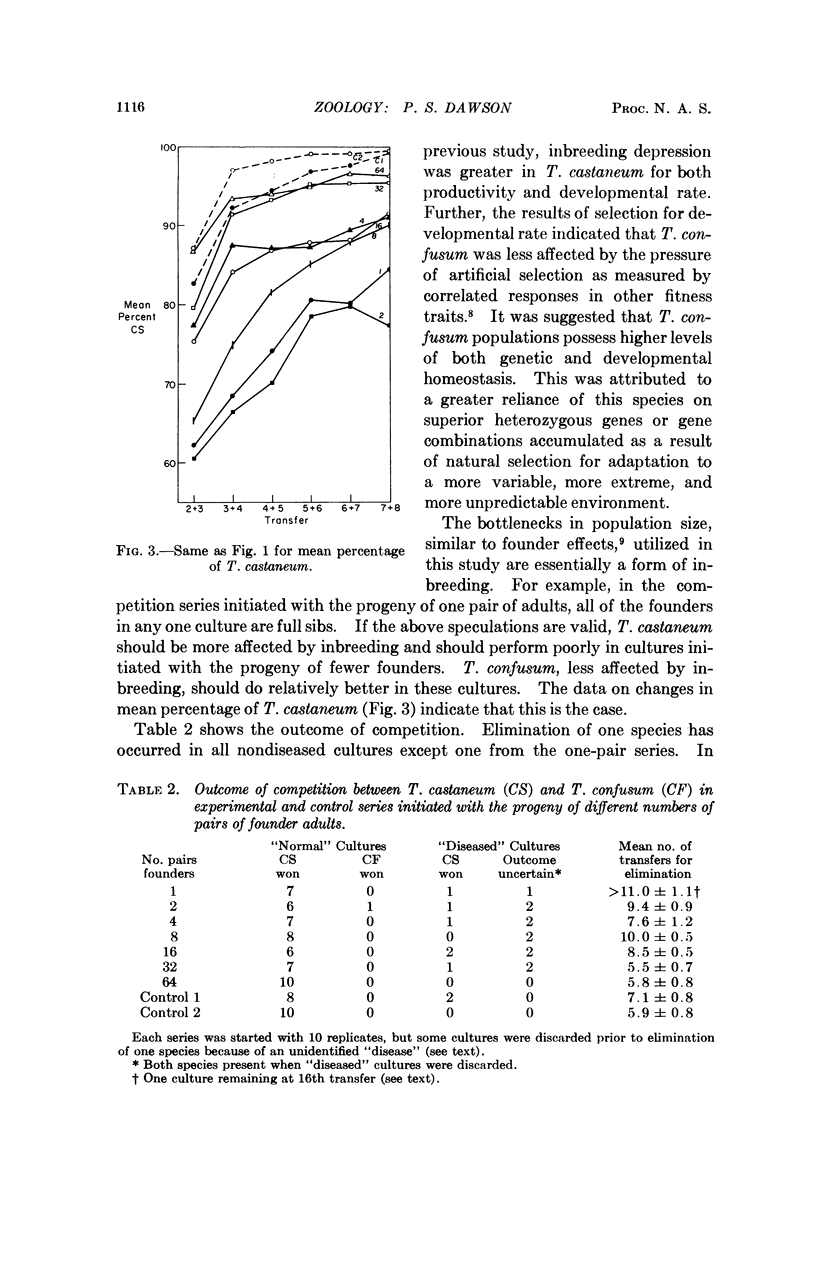
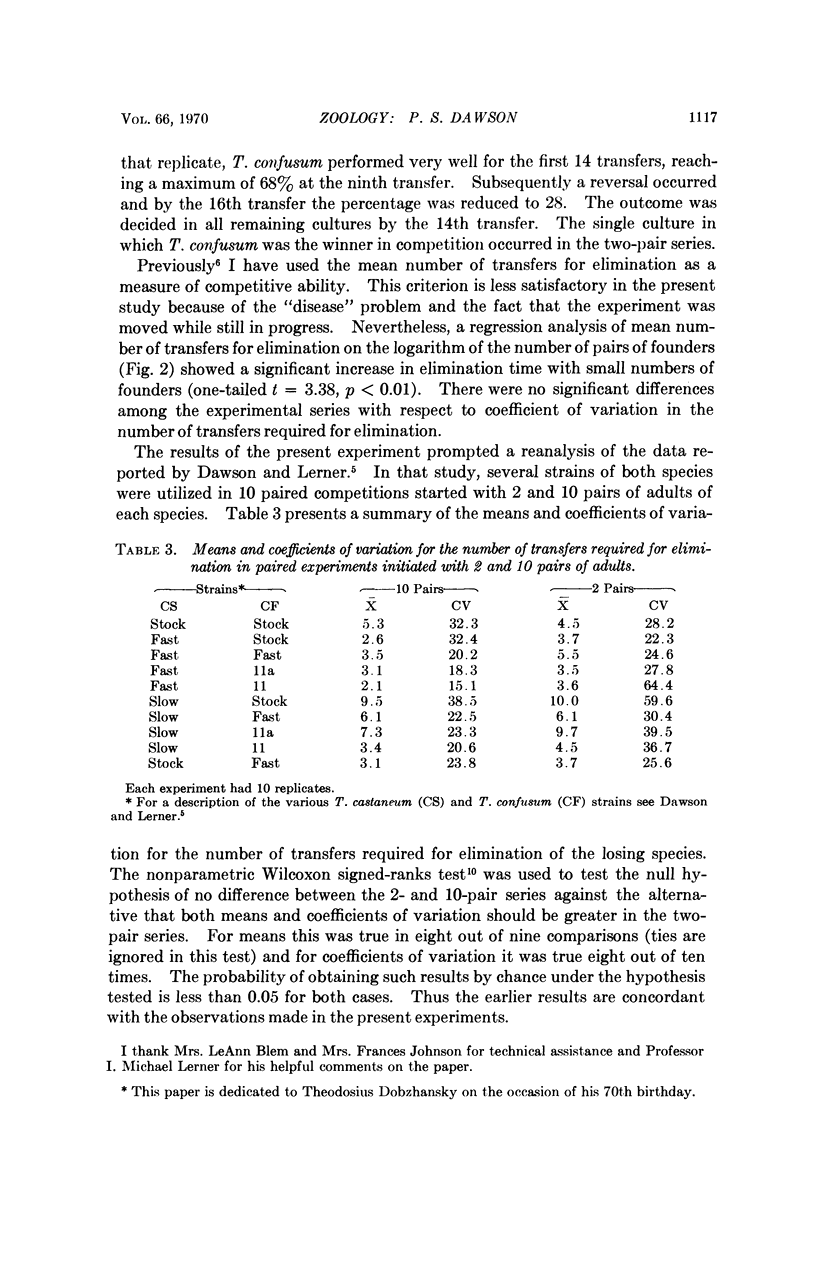

Selected References
These references are in PubMed. This may not be the complete list of references from this article.
- Dawson P. S., Lerner I. M. The founder principle and competitive ability of tribolium. Proc Natl Acad Sci U S A. 1966 May;55(5):1114–1117. doi: 10.1073/pnas.55.5.1114. [DOI] [PMC free article] [PubMed] [Google Scholar]
- Lerner I. M., Dempster E. R. INDETERMINISM IN INTERSPECIFIC COMPETITION. Proc Natl Acad Sci U S A. 1962 May;48(5):821–826. doi: 10.1073/pnas.48.5.821. [DOI] [PMC free article] [PubMed] [Google Scholar]


